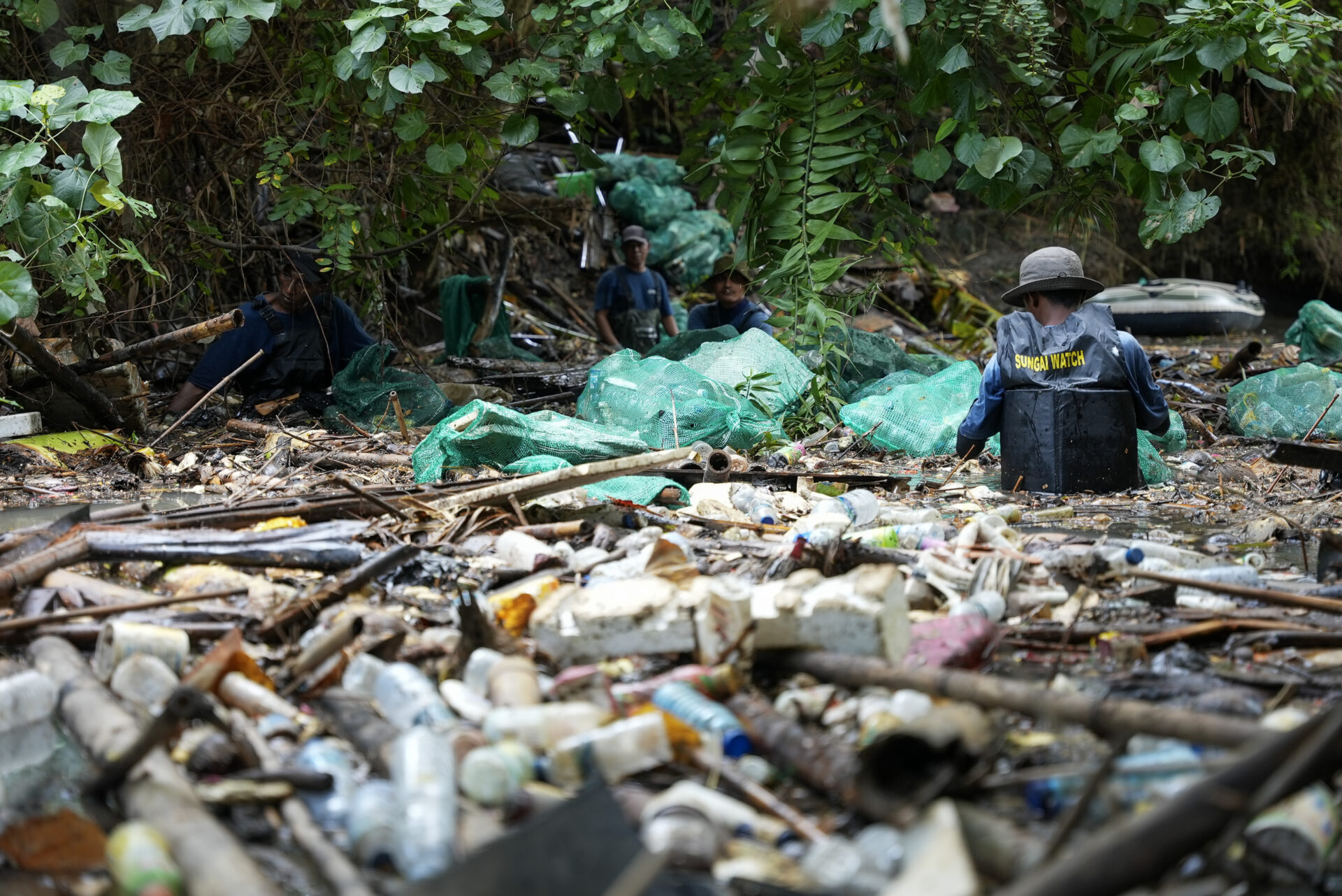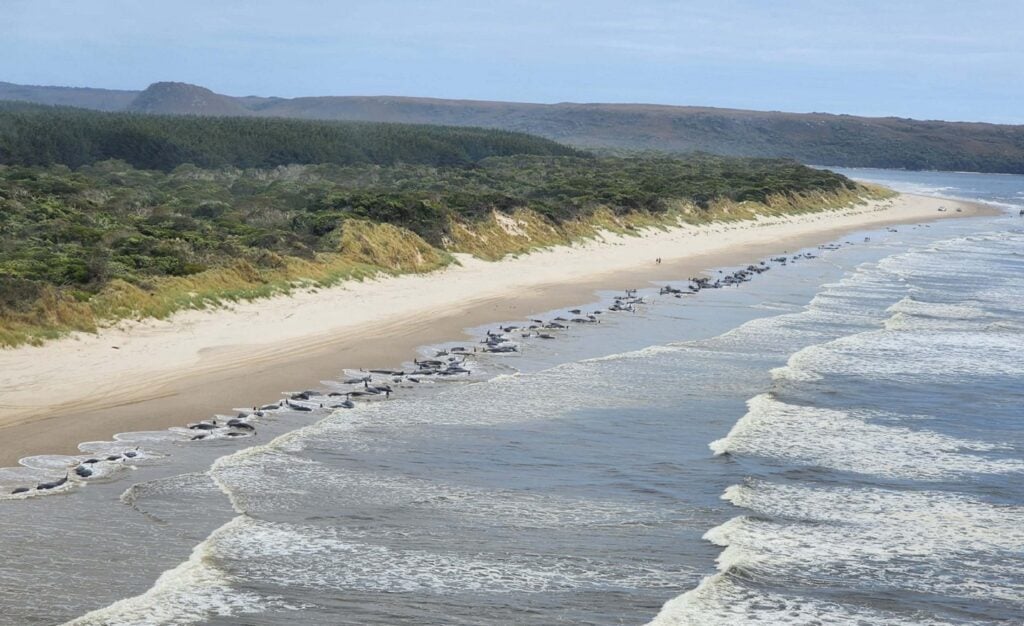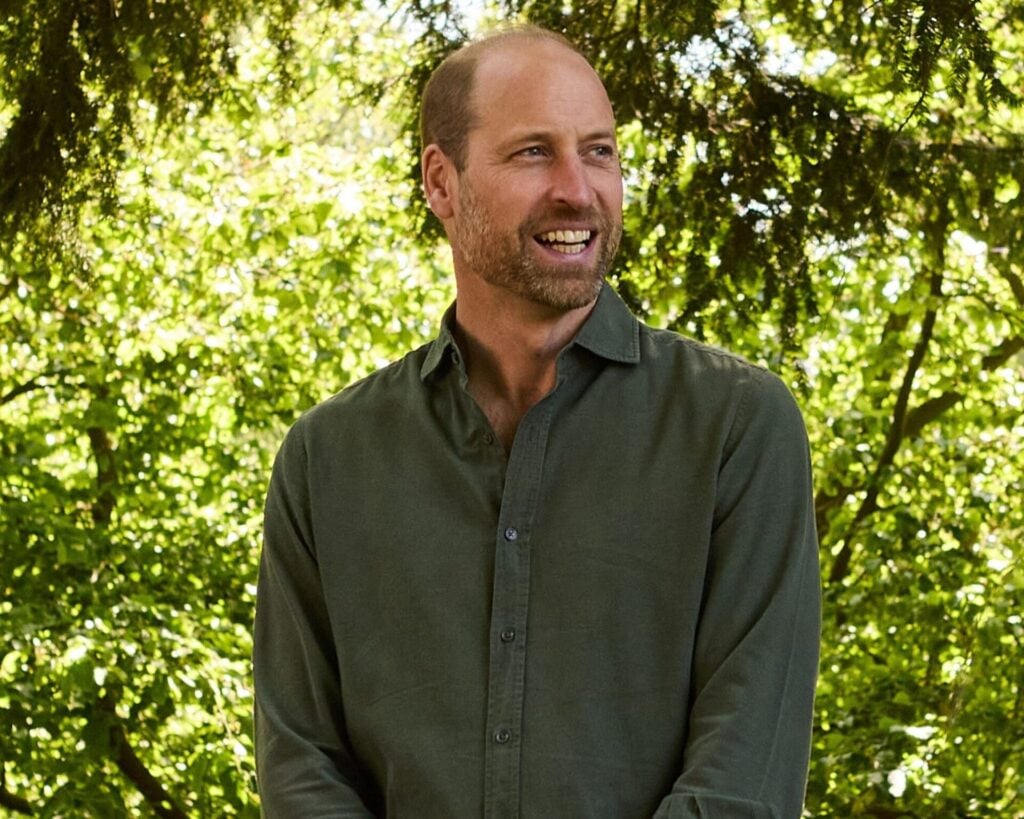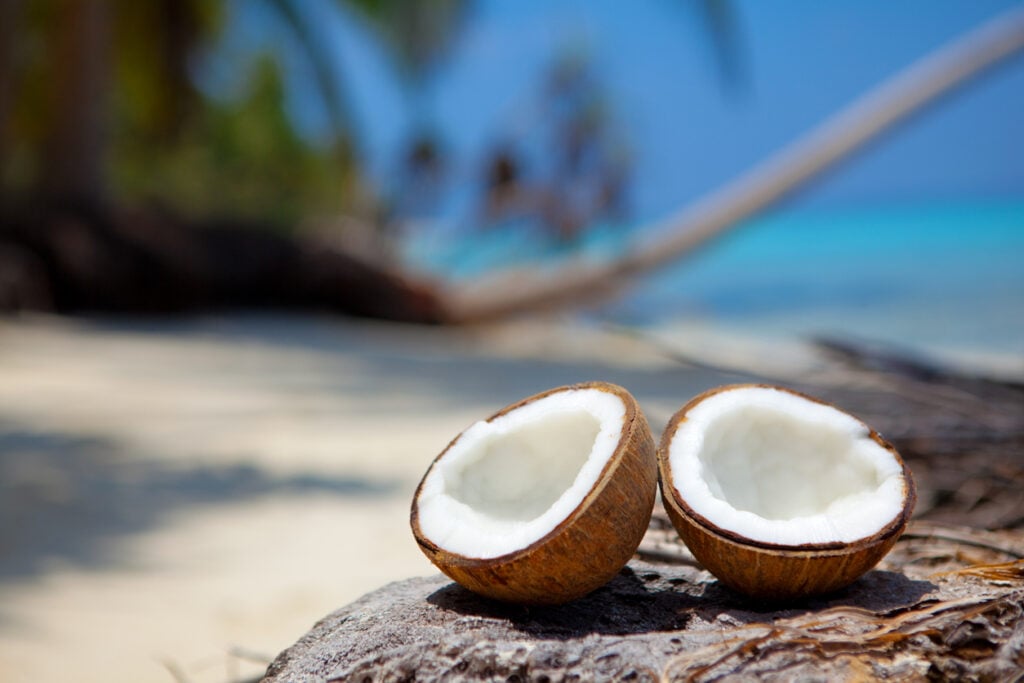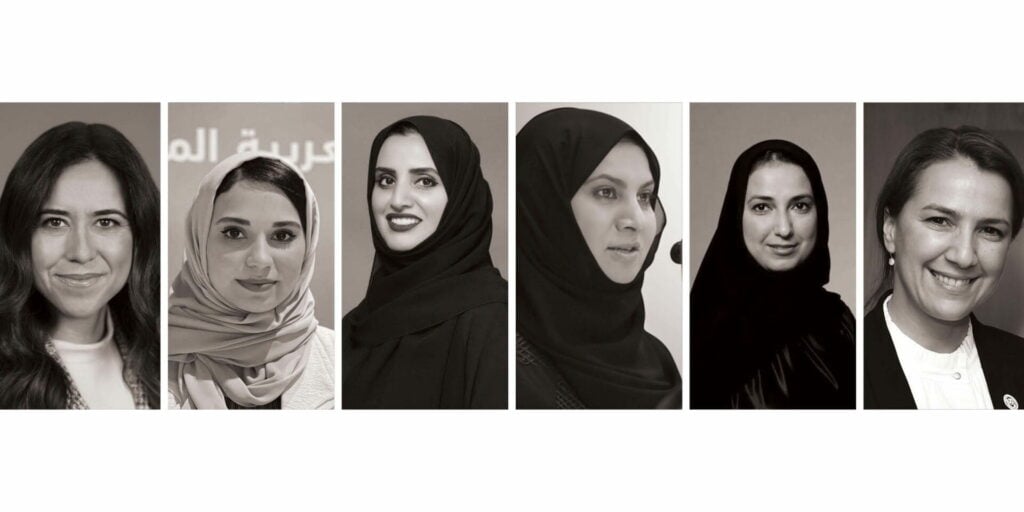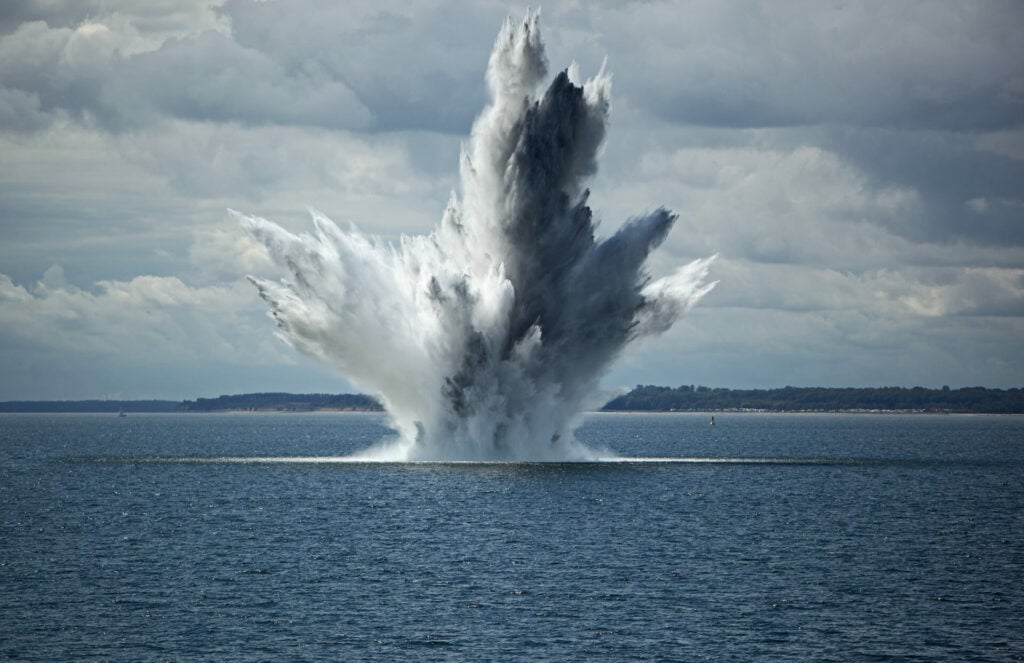Sam Bencheghib wades chest deep through a Bali river and is soon surrounded – not by the cool, refreshing flow of water, but a suffocating sea of plastic. Bottles, bags, pots, pouches and a plethora of unidentifiable debris sit stagnating around him. It’s a sight – and smell – that would dishearten, if not disgust, most but for Sungai Watch founders Sam, 27, and his older brother Gary, 29, and sister Kelly, 31, the island’s pollution problem has become their life purpose. It’s an ambitious goal: to stop Indonesia’s plastic waste from reaching the ocean.
The archipelago’s turquoise waters and lush landscapes have long made it a popular tourist destination, but Indonesia’s natural beauty is slowly being eroded by a tidal wave of man-made waste. According to a 2024 study published in the Nature journal, the country ranks third as the world’s largest contributor to plastic pollution producing 3.4 million tonnes of plastic waste annually. Even worse, in addition to its own, thousands of tons more plastic debris are also brought into the country from countries including the Netherlands and Japan, despite a ban imposed in 2019.
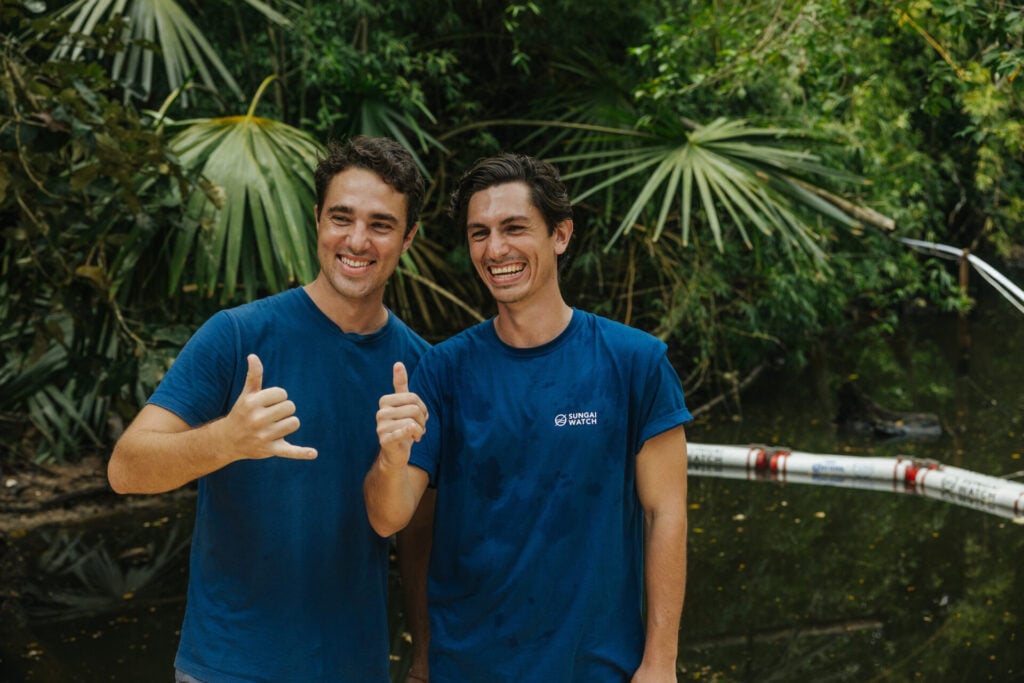
Disposed of improperly, much of it ends up in the sea and rivers with Indonesia’s Ministry of Environment and Forestry confirming that as of 2020, 59 per cent of the country’s rivers were classified as heavily polluted. In 2050, it’s suggested that if our pollution crisis continues unabated, there will be more plastics than fish in the world’s oceans and more than 80 per cent of it ends up there from rivers and streams.
With over 17,000 islands, Indonesia’s geography makes waste management efforts complicated. The vast distances, regional differences, and a largely informal waste sector make tackling plastic pollution a monumental challenge. The visible impact, however, is undeniable: rivers choked with debris and beaches littered with plastic. It’s a crisis that threatens marine life, tourism, and the livelihoods of millions of Indonesians who rely on clean waterways.
Reclaiming Rivers
In the midst of this environmental emergency, Sungai Watch, a Bali-based charity founded in 2020 by the Bencheghib siblings, has emerged as a beacon of hope. The organisation specialises in installing trash barriers – floating devices that intercepts river waste before it reaches the ocean – and operating a collection, sorting and up-cycling system to tackle plastic pollution. In just four years, they have removed almost three million kilos of plastic from Bali and East Java’s waterways.
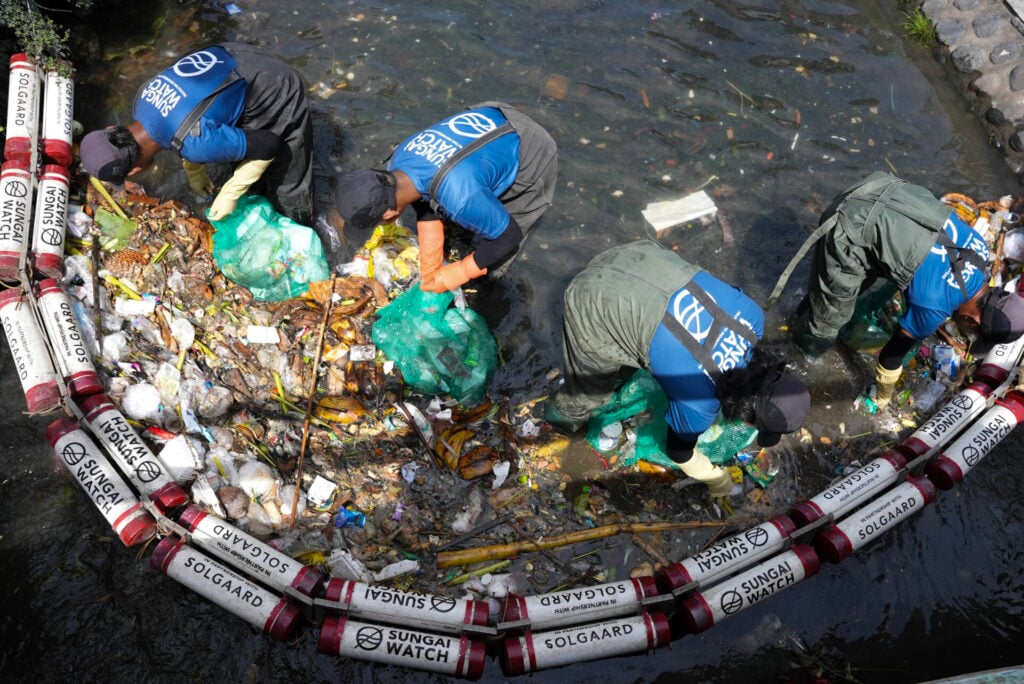
Born in France but raised on the beaches of Bali, the trio witnessed the growing plastic problem from an early age. ‘Having lived in Indonesia for 20 years, we have seen firsthand how the absence of proper waste management infrastructure devastates the environment – polluting rivers, beaches, mangroves, and coral reefs.’ Sam tells The Ethicalist.
In 2017, Gary and Sam undertook a two-week expedition down the Citarum River in West Java – one of the world’s most polluted – using kayaks made from plastic bottles. Social media videos of them struggling to paddle through masses of plastic highlighted the plight of the 15 million people living along the river, and sparked governmental action. An emergency cleanup was put in place by Indonesia’s environment ministry and a seven-year rehabilitation plan announced by then President Joko Widodo.
Inspired by the impact, the siblings founded Sungai Watch – sungai means ‘river’ in Indonesian –, with the mission to stop plastic from reaching the ocean.
‘We were fed up of seeing bigger and bigger plastic waves wash up on Bali’s beaches every year and when we realised that most of the plastic in the ocean comes from rivers, we took it upon ourselves to figure how to stop plastic from getting into the ocean in the first place,’ Sam explains.
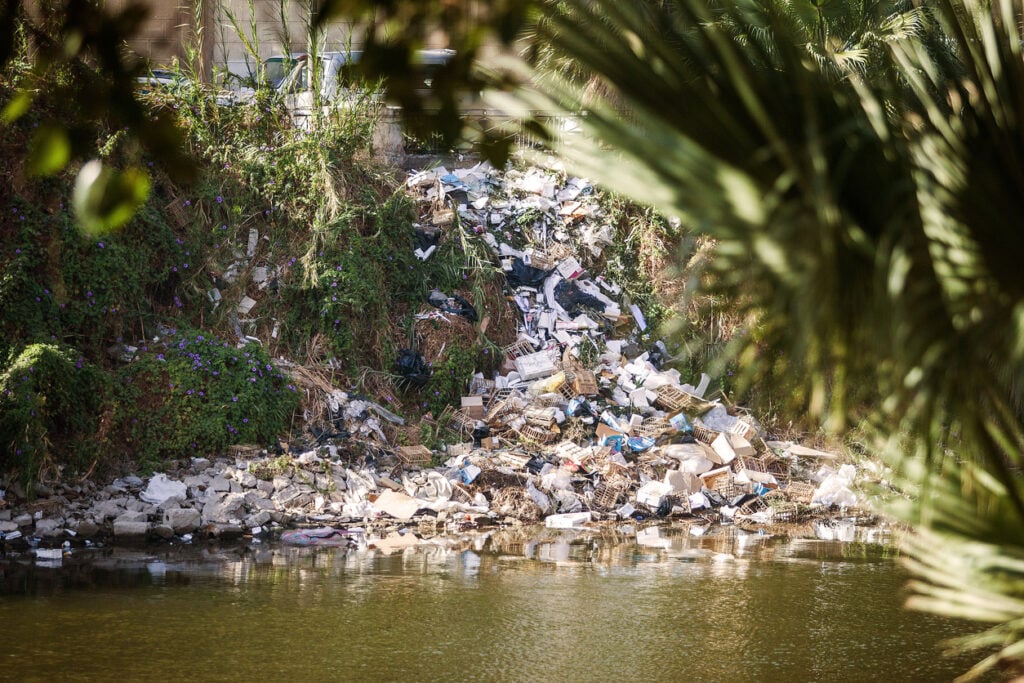
By focusing on river mouths and highly polluted river systems, they’ve tackled the plastic crisis at its source. However, their strategy has evolved over time. ‘Initially, we chose to focus on disaster relief efforts by cleaning rivers in dire need of help, starting with river mouths and the most polluted rivers in Indonesia, before plastic could reach the ocean,’ Sam explains. ‘However, over time we have been shifting our efforts upstream, to make sure that plastic doesn’t reach rivers in the first place.’
‘Plastic pollution is too big of a problem to “clean up.” Our goal is to make local communities feel proud of their rivers and by working together we can create systemic change upstream’
While the scale of their work is staggering – the Sungai Watch team of 119 full-time River Warriors collect three tons of river plastic every day – by collaborating closely with local communities they’re ensuring that the fight isn’t just a top-down initiative. Weekly volunteer cleanups in local communities bring together people of all ages, while educational programs in classrooms and villages promote positive waste management behaviours in communities where it is often undervalued.
Historically, in many parts of Indonesia, household items like utensils, food wrappers, and containers were made from natural materials such as bamboo, banana leaves, or coconut shells. These materials would naturally biodegrade when discarded. This traditional practice led to a ‘throwaway’ behaviour that was sustainable for centuries in a pre-plastic world.
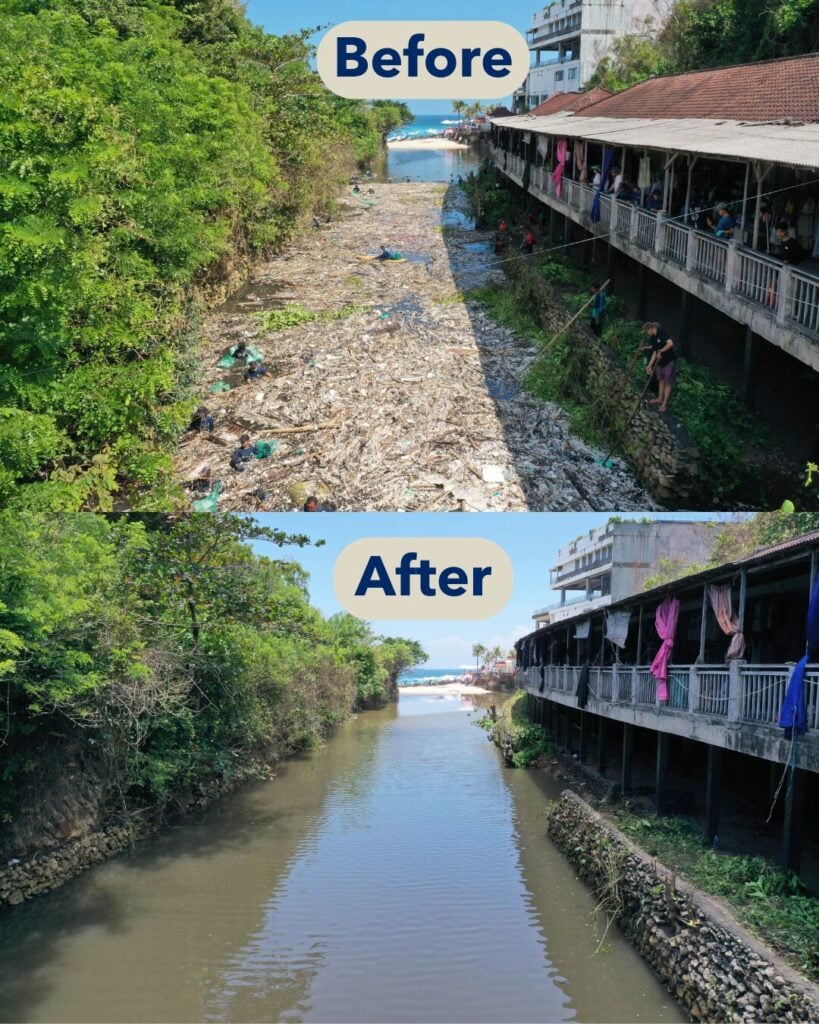
However, with the introduction of modern materials such as plastic, this behaviour has persisted, but the environmental consequences have dramatically changed. Unlike bamboo or banana leaves, plastic does not biodegrade and instead accumulates in the environment, creating widespread pollution.
‘We believe that to see long-term tangible change we need to instil habits in communities directly,’ Sam says. ‘Plastic pollution is too big of a problem to “clean up.” Our goal is to make local communities feel proud of their rivers and by working together, we can create systemic change.
‘It’s also especially rewarding when the community comes together to help clean the waterways. We’ve hosted a few cleanups where we have called for help, and literally thousands of volunteers have shown up to provide support.’
Tackling plastic pollution, however, is no small feat. The work is physically demanding, requiring long hours in harsh conditions, often in waterways so clogged with waste that the water is barely visible. ‘Every cleanup we organise in a river where the plastic coverage is so severe you can’t even see the water feels a bit overwhelming at first,’ Sam admits. ‘We start feeling like we’re witnessing the end of the world. But through teamwork and hours and hours of hard work, we manage to completely restore natural ecosystems.’
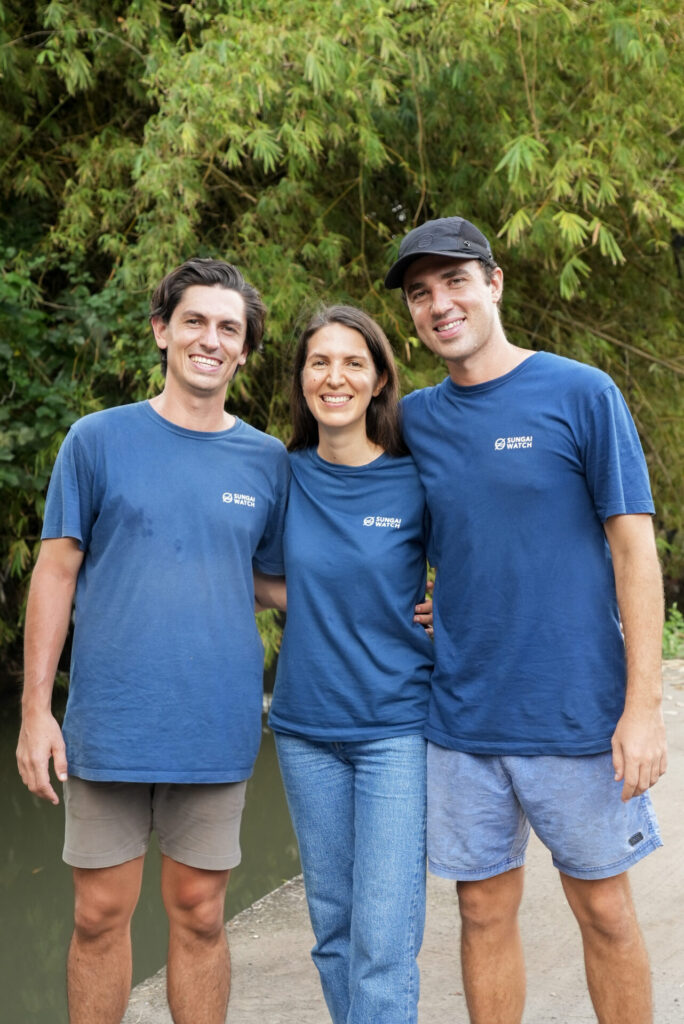
In 2023, the non-profit organisation, which is funded through a combination of donations, sponsorships, and partnerships, managed to successfully clean 380 rivers across Bali and Java, pulling out everything from common culprits like nappies and cables to more surprising finds, such as ukuleles.
‘We have found everything in the rivers,’ says Sam. ‘You name it, we have probably picked it out…. fridges, mattresses, wallets (with money inside!), children’s toys, dead animals, every type of trash you can think of.’
Trash to Tables
After being intercepted by the trash barriers, the waste – a third of which is plastic bags – is transported to Sungai Watch’s sorting centres. There, River Warriors and volunteers categorise it into different types of plastic, organic matter, and non-recyclables. Recyclable materials are sent to local recycling facilities, while non-recyclables are disposed of responsibly. Organic waste is often composted to reduce the amount of material that ends up in landfill.
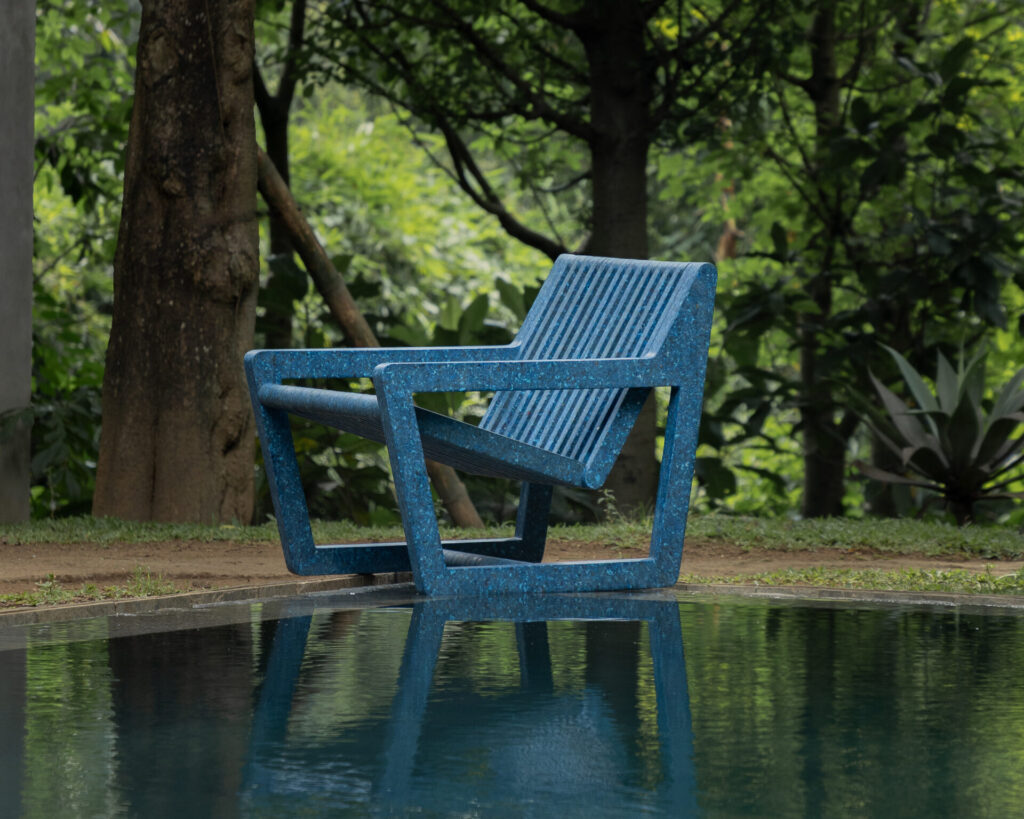
In March 2024, the siblings also launched Sungai Design, an online e-commerce platform that transforms river waste – primarily the plastic bags – into pieces of contemporary furniture. In that short period of time, almost 10,000kg of bags have been used to create stools, chairs and tables. Sungai Design’s furniture is crafted through collaborations with various designers, notably the Ombak lounge chair which is made from 2,000 discarded plastic bags and retails at $960, which was designed in partnership with American designer Mike Russek. This circular approach not only reduces waste but also provides sustainable funding for the siblings’ operations.
‘Every cleanup we organise in a river where the plastic coverage is so severe you can’t even see the water is incredibly rewarding. We start feeling like we’re witnessing the end of the world. But through teamwork and hours and hours of hard work, we manage to completely restore natural ecosystems’
‘After cleaning rivers for four years, we asked ourselves: what if we could up-cycle every piece of trash out there that’s sitting in a river, and turn it into a cool, practical product that replaces new, virgin materials?’ Sam says. ‘And what if we could take everything that’s sitting in a landfill and convert it into products? And with the funds generated, clean even more rivers and fix the plastic pollution crisis?’
Visible Results
The impact of Sungai Watch’s work is tangible. Rivers once choked with plastic now flow freely, thanks to the tireless efforts of volunteers and staff. Yet, as Sam points out, their work is just a drop in the proverbial ocean compared to the scale of the problem.
Despite global efforts by changemakers like Sungai Watch, the plastic crisis continues to grow at an alarming rate. The plastic manufacturing industry has expanded significantly in recent years, producing over 400 million tonnes of plastic globally every year, much of which ends up in the environment. Consumer usage, driven by a lifestyle centred around convenience, has also surged, fuelling the demand for single-use plastics.
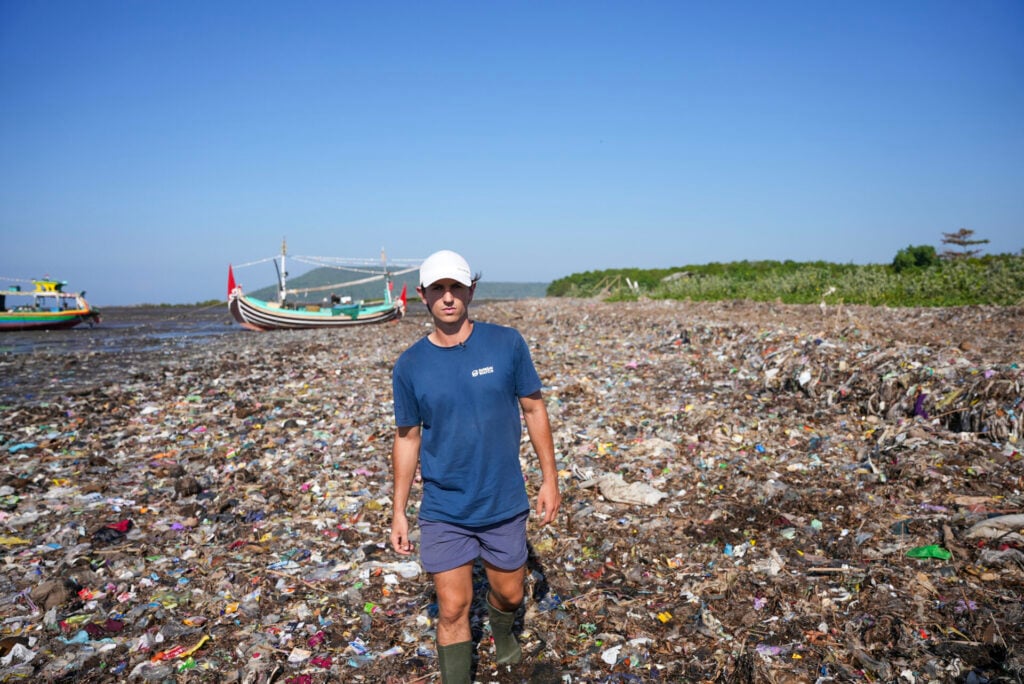
‘To see real progress, we need to scale up dramatically, raising huge amounts of funding to deploy more trash barriers, clean up more rivers, and build efficient sorting centres, Sam admits. ‘The only way to fight an industry this big is to match their scale with larger and more efficient collection infrastructure.’
This year the organisation plans to expand to Jakarta, with the goal of removing one million kilos of plastic annually. It’s an ambitious target, but one that aligns with their vision of scaling their solution across Indonesia and beyond. ‘We need to operate with extreme urgency,’ says Sam. ‘Only then do we stand a chance at fixing plastic pollution.’
In the face of an overwhelming crisis, Sungai Watch are proving that change is possible one river, one volunteer, one piece of plastic at a time.

